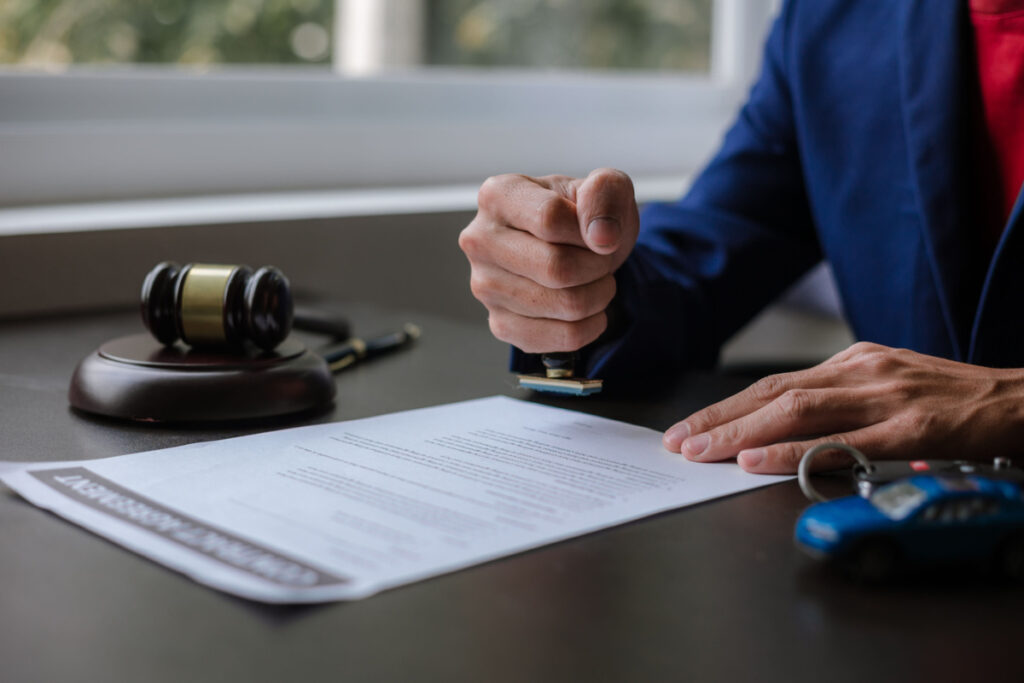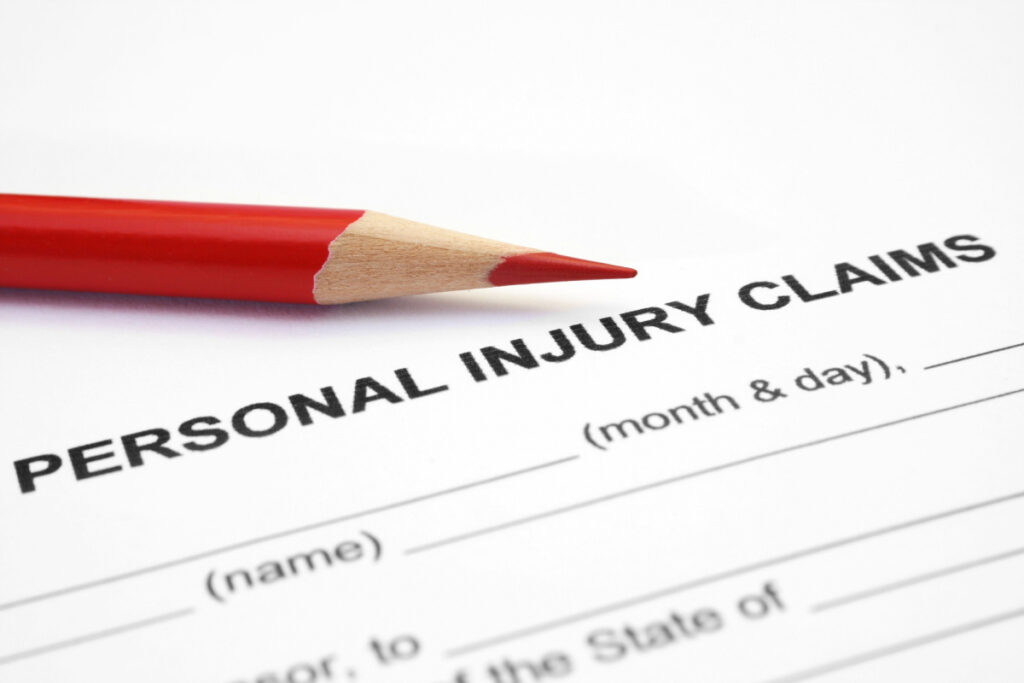Post-traumatic stress disorder (PTSD) can significantly impact the outcome of an insurance claim after a car accident. Learn how to prove and seek compensation for this condition.
- PTSD can affect anyone who experiences or witnesses a traumatic event, such as a car accident
- Symptoms of PTSD after an accident may include anxiety, flashbacks, irritability, and avoidance behaviors
- Proving PTSD requires a medical diagnosis and documentation of the accident’s severity
- Compensation for PTSD may include medical expenses, lost income, and emotional distress damages
- Documenting PTSD can help accident victims receive fair compensation and understand their condition
| Proving PTSD | Benefits of Documentation |
| Seek medical evaluation and diagnosis | Supports fair compensation for emotional distress |
| Document severity of accident with evidence | Helps plaintiffs understand their condition |
| Demonstrate impact on daily life and relationships | Strengthens personal injury claims |
Why is it important to prove PTSD after a car accident in insurance claims and legal proceedings?
Proving PTSD after a car accident is crucial for receiving fair compensation for the long-lasting emotional and psychological effects of the trauma.
A medical diagnosis of PTSD can strengthen a personal injury claim, allowing accident victims to seek damages for their mental suffering, reduced quality of life, and treatment expenses.
Documenting the condition also helps victims better understand their symptoms and obtain the necessary support for recovery.
Proving PTSD After a Car Accident in Insurance Claims and Proceedings
Psychological disorders, notably post-traumatic stress disorder (PTSD), often emerge from distressing events like car accidents. The presence of PTSD can significantly influence the outcome of insurance claims post-accident.
Victims with PTSD may face challenges such as impaired concentration and reaction times due to symptoms like vivid dreams and flashbacks. These symptoms can compromise safe driving, potentially affecting the victim’s insurance claims if they’re deemed at fault in subsequent accidents.
Additionally, PTSD recovery often requires specialized mental health services, such as therapy, increasing the claim’s complexity and cost. The financial burden of psychological care highlights the need for insurance policies that cover the extensive effects of PTSD.
Insurance companies and legal representatives must consider the profound impact of PTSD on victims. Fair settlements and proceedings should account for the comprehensive needs of individuals with PTSD, ensuring they receive adequate support and compensation for their recovery.
Who Can Have PTSD?
Post-traumatic stress disorder (PTSD) affects individuals regardless of age, triggered by various traumatic events such as assault, accidents, natural disasters, and war experiences. The National Center for PTSD reports that approximately 6% of people will experience PTSD at some point, with women being more likely to develop the condition than men (8% vs. 4%).
Genetics also play a role in PTSD susceptibility, indicating that some individuals are inherently more prone to the disorder due to hereditary factors. Notably, direct exposure to trauma is not a prerequisite for PTSD; it can also arise from the threat to or loss of loved ones.
A recent study suggests that one in three individuals exposed to significant trauma may develop PTSD, highlighting the disorder’s considerable impact. The reason why PTSD manifests in some but not others, despite similar traumatic exposure, is not fully understood. However, research points to the involvement of stress hormone levels in the disorder’s development.
This overview emphasizes the need for awareness and tailored interventions to support those at risk of or suffering from PTSD, acknowledging the complexity of factors that contribute to its onset.
What Compensation Can I Get for PTSD In a Crash?
If diagnosed with post-traumatic stress disorder (PTSD) after an accident, you may qualify for various forms of compensation. These include medical expenses for treating PTSD, lost income if the disorder impairs your ability to work, and rehabilitation costs for therapies like cognitive-behavioral therapy (CBT) and eye movement desensitization and reprocessing (EMDR).

Compensation also covers emotional and physical pain and suffering, acknowledging the profound non-economic impact of PTSD on your life and well-being. Additionally, depending on the accident’s nature and location, you might be compensated for other related expenses, such as lifestyle adjustments and long-term care.
Seeking the assistance of a personal injury lawyer is crucial in navigating the compensation claim process. An experienced attorney can guide you through the complexities, ensuring you receive the full compensation you’re entitled to, including negotiating with insurance companies and representing your interests in legal proceedings if necessary.
PTSD Signs Following an Accident
Recognizing post-traumatic stress disorder (PTSD) signs after an accident is crucial, as symptoms may not appear immediately. It’s vital to consult a medical professional if you suspect PTSD has developed following an accident. Common symptoms among those diagnosed with PTSD include:
- Anxiety related to driving: Intense fear or paranoia that specifically arises when thinking about or engaging in driving.
- Flashbacks and intrusive thoughts: Unexpected, vivid memories of the accident that can disrupt daily life.
- Detachment: A sense of estrangement or disconnection from people and activities once enjoyed.
- Irritability and anger: Heightened feelings of frustration or rage that can affect relationships and daily interactions.
- Avoidance: Steering clear of trauma reminders, including certain locations or social settings.
- Insomnia: Difficulty falling or staying asleep, which can worsen other PTSD symptoms.
Early intervention is key. Seeking professional guidance upon noticing these symptoms can lead to effective management of PTSD, enhancing overall well-being and recovery.
Proving PTSD After Being In An Accident
Proving post-traumatic stress disorder (PTSD) after an accident is often challenging, as early symptoms can be subtle and easily attributed to shock or normal reactions to stress. If symptoms are minimized or overlooked, it can hinder the ability to secure compensation later, given the importance of expert testimony in substantiating psychological injury claims.
Regardless of apparent injury severity, seeking immediate medical attention after an accident is essential. A medical evaluation not only supports health but is also crucial in legal efforts to prove PTSD. Documentation from healthcare providers on the diagnosis and treatment of PTSD is key evidence in court.
The risk of long-term psychological effects, such as PTSD, generally increases with the severity of the accident. Evidence collection, including video footage, witness statements, and documentation of physical damages, plays a vital role in demonstrating the trauma’s magnitude and its psychological impact.
Navigating the complexities of proving PTSD requires diligent documentation and professional guidance. Immediate post-accident medical consultation and legal advice from experienced personal injury lawyers are crucial steps for victims in protecting their rights and substantiating their claims.
The Advantages of Documenting PTSD Following an Incident
Documenting post-traumatic stress disorder (PTSD) after an accident is crucial for both securing fair compensation and aiding personal recovery. Recognizing PTSD in a personal injury claim allows for the inclusion of non-economic damages like pain, suffering, and emotional distress, acknowledging the trauma’s profound impact beyond physical injuries.
A formal PTSD diagnosis from a healthcare professional not only strengthens the legal case by providing concrete evidence of psychological suffering but also ensures the seriousness of the claim is recognized, facilitating appropriate compensation.

Beyond the courtroom, a PTSD diagnosis holds personal significance for survivors, helping them understand their symptoms and access targeted treatment. This formal acknowledgment of their condition can be vital in their recovery process, offering clarity and support for managing the aftermath of a traumatic event.
In essence, documenting PTSD serves a dual purpose: it is key in achieving comprehensive legal recognition and compensation, and it plays a crucial role in the emotional and psychological recovery of the individual affected by the trauma.
Demonstrating PTSD as a Compensationable Injury in a Vehicle Accident Case
Auto accidents often result in significant psychological distress for victims, including post-traumatic stress disorder (PTSD), anxiety, and depression, alongside physical injuries. While physical harm is more visible and thus readily compensated, the mental and emotional impact of such trauma can be overlooked in claims processes. However, it’s important to acknowledge that PTSD and other mental health conditions arising from vehicle accidents are compensable injuries.
Compensation claims can include the costs of mental health support, such as counseling or therapy, recognizing these as critical components of the victim’s recovery. This coverage can be provided under state-approved auto insurance policies or through personal injury claims, offering financial aid for the psychological healing process.
By including mental health treatment in compensation, the claims process acknowledges the full extent of trauma recovery, ensuring victims receive the comprehensive care needed. This approach underscores the importance of treating psychological injuries with the same seriousness as physical ones, facilitating a more holistic recovery for those affected by auto accidents.
Proving PTSD for Car Accident Compensation
Proving post-traumatic stress disorder (PTSD) following a car accident is essential for securing appropriate compensation for victims. The process hinges on three main elements:
- Medical Diagnosis: Obtaining a formal diagnosis from a healthcare professional is crucial. This provides definitive evidence of PTSD, outlining its severity and symptoms, which bolsters the victim’s claim.
- Evidence of Accident Severity: Documenting the traumatic nature of the accident through police reports, photographs, eyewitness accounts, and other relevant evidence establishes the link between the incident and the resulting psychological distress.
- Impact on Daily Life: Demonstrating how PTSD affects the victim’s everyday activities, including work, social interactions, and personal well-being, is vital. Testimonies from the victim, alongside input from family, friends, and employers, paint a comprehensive picture of the disorder’s effects.
Legal assistance can be invaluable in navigating the claims process, ensuring that all necessary documentation is accurately compiled and presented. An experienced attorney can effectively advocate for the victim, aiming to achieve a settlement that genuinely reflects the emotional and psychological damage incurred.
Struggling with PTSD Post-Accident? Allan Berger & Associates Can Help
Experiencing PTSD following a car accident? Allan Berger & Associates offer compassionate legal assistance. Our expertise in personal injury cases involving PTSD ensures a strong representation of your psychological injuries and their effects on your life.
Reach out to schedule a free consultation. Let us guide you through proving your PTSD, advocating for justice, and securing the support essential for your recovery.








